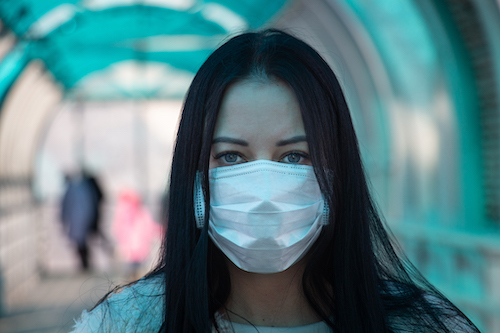We must look past the pandemic

Photo by and used with permission of https://www.vperemen.com
As the COVID-19 pandemic has shaken up the past year, it has also created uncertainty about the futures of our seniors. Looking into the future, we must prepare for a new reality and make bold new strides.
As vaccine distribution kicks into high gear, our staff is beginning to see a light at the end of the tunnel. For the first time in a long while, there seems to be a bright future ahead, dominated by a slow return to a semblance of normality. This future must be spearheaded by our seniors. Our LZ graduates that are making their way into the world have the power and the determination to make real change. They will be as much a part of the transition into a new reality as any other generation. As our community continues to see the pandemic recede, we must ask ourselves how this transition will and should look. Ultimately, our staff believes our society should move on from the darkness of the pandemic as quickly and safely as possible. Though, rushing to a familiar state of being is not necessarily what we mean. Instead, we should remember those lost and learn lessons from our failures during this pandemic, hopefully to guard against another catastrophe in the future.
We will move away from social distancing. We will largely discontinue the use of masks – save for those who are sick. We will eventually settle into a “new normal.”
However, there will be a learning curve on our way to this future reality. We have grown accustomed to pandemic living, in all it’s lazy, isolated glory. For students, particularly, many have gotten used to a new virtual way of learning. Rather than being forced to sit through a lecture and feign interest, students can now simply turn off their cameras and look for immediate gratifications on phones. With e-learning, there is very little incentive to put in a full effort towards learning, making for an altered education system riddled with distractions and cheating. Students will have a hard time transitioning away from this. Whether they are going off to college or staying in LZ, students will most likely return for a more normal year in the fall. Our staff predicts some students will have trouble changing bad habits.
We won’t just need to get used to a traditional classroom setting, but we also need to prepare for a whole new set of awkward interactions as society transitions. As the pandemic slowly recedes, there will likely be a lot of uncertainty about boundaries and safety. Anything from speaking distance to mask-wearing will be up in the air in this transitional period, and our community needs to be ready to roll with the punches. We must find a balance between safety and returning to normal interactions, even if those interactions are a little hard to get used to.
But what image of normality is our society moving towards? In many ways, the pandemic has been an opportunity to reflect on how our communities look and feel, and what habits we should keep or do away with. The past year has shown more than empty restaurants, closed swimming pools, and closer social circles. It has pointed out the divides deep in our society, and what groups are most vulnerable and who need more protection.
While most high-income parents and students were able to work remotely, lower-income people had to continue working through the pandemic. While towering corporate offices emptied out and went dark, drive through lines and factories remained bright and abuzz. As many small, family owned businesses struggled and closed down over the past year, a plurality of multinational corporations like Amazon only gained power and profit. Although predominantly white, affluent communities saw relatively low death rates throughout the pandemic, communities of color suffered more deaths and a lack of testing. These are just some of the social, economic, and cultural divides the pandemic exposed, and our society must reflect on these truths and attempt to make change.
One or two decades from now, Covid-19 will likely be the last thing on our minds. The legacy left by this pandemic will be a whisper. Maybe we will wear masks when we’re sick. Perhaps hand sanitizer will be more easily accessible. Hopefully there will be a more extensive plan in place to prevent a pandemic like this from ever happening again. Will our society make the big, structural change that is needed in those ten to twenty years? Probably not. But our seniors must realize that they can make a meaningful impact on the future, even if it’s just in baby steps. It’s easy to turn off our zoom, but we must stay engaged. It’s easy to be disgruntled about our circumstances right now, but we must become more proactive in the future. We must work to advocate against the issues the pandemic exposed, whether that be preventing this kind of catastrophe in the future or targeting social divides.

As a senior, this is Max’s third year on staff and first year as magazine editor in chief for the Bear Facts program. He aspires to study environmental...
